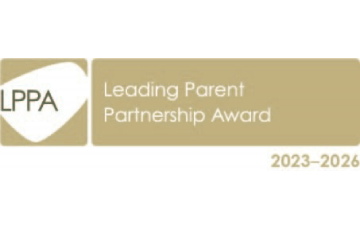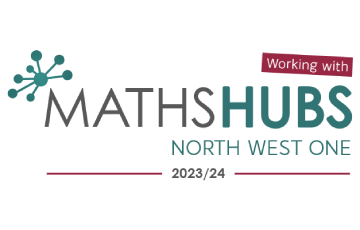Reading
Reading
Intent
At Cavendish Primary School, we aim to cultivate a lifelong love for reading, empowering every child to become confident, proficient and enthusiastic readers. We believe that reading is the cornerstone of academic success and personal development. Our curriculum is designed to foster a rich reading culture that celebrates diversity, promotes critical thinking and nurtures creativity.
Through our reading curriculum, we aim to expose our students to a wide range of genres, authors, and perspectives, allowing them to explore the world beyond their immediate experiences. We prioritise developing essential reading skills such as decoding, comprehension, fluency and inference, ensuring that every child has the tools they need to navigate texts with confidence.
We recognise the importance of fostering a supportive and inclusive reading environment where every child feels valued and encouraged to express their thoughts and opinions about what they read. We are committed to providing the support and guidance to meet the needs of each child, whether they are emerging readers or advanced enthusiasts.
Beyond the classroom, we actively promote reading for pleasure, providing opportunities for children to engage with books through school library visits, author visits, reading challenges, book fairs and event days. We believe that by instilling a passion for reading from an early age, we can empower our children to become lifelong learners, critical thinkers, and creative individuals who are equipped to thrive in an ever-changing world.
Aims linked to Values/Rights
As a Rights Respecting school it is our aim to empower all children through reading. This promotes their well-being and development and supports their right to develop to their fullest potential and participate actively in their own education. Literacy is essential for children to exercise their rights and participate fully in society.
Our Reading curriculum is linked, when relevant, to the golden values of the school. These are:
- Equality
- Positivity
- Courage
- Respect
- Responsibility
- Kindness
Inclusion
At Cavendish, we use a range of adaptive teaching strategies to ensure all children, regardless of barriers, are able to access reading. All pupils in the class should be taught all of the key skills – it is the statutory requirement and pupils should not be limited.
However, additional learning or support may include;
- Accessing ‘Lightning Squad’ intervention program (school and home)
- Accessing additional phonics sessions
- Careful pairing during whole class reading sessions
- Additional individual or group reading practise
- Using visuals & concrete resources e.g. phoneme mats
- Using scaffolds for oral or recorded comprehension
- Use of Nessy in KS2 for SEND children to develop phonic knowledge (school and home)
Implementation of Curriculum
Reading is the cornerstone of academic success. We strive to equip our children with strong reading skills that empower them to excel in all subjects by making reading an integral part of our curriculum.
Nursery:
- Phase 1 Letters and Sounds: In the Nursery at Cavendish Primary School, we lay a strong foundation for reading by introducing children to Phase 1 of Letters and Sounds. This phase focuses on developing essential pre-phonics skills, such as listening and sound discrimination. Through fun and interactive activities, children learn to identify and differentiate sounds in their environment. We use games, music, and sensory experiences to engage children in these early literacy concepts.
- FFT SFA First Steps to Phonics: As children progress, we transition into First Steps to Phonics. This structured approach helps students develop phonemic awareness, which is crucial for reading and writing. Through systematic phonics instruction, children learn to recognise and decode letters and sounds.
- Concepts about Print: Throughout the year, we integrate Concepts about Print into our curriculum. This includes teaching children about the basic elements of print, such as understanding that print carries meaning, recognizing letters, words, and sentences, and the left-to-right and top-to-bottom directionality of reading. We use age-appropriate books and materials to reinforce these concepts and encourage children to explore printed text.
- Interactive Storytelling: Storytelling plays a central role in our reading implementation. We engage children in interactive storytelling sessions, where they can actively participate in creating and retelling stories. This fosters a love for narratives and encourages them to become storytellers themselves.
- Phonemic Play and Rhymes: Nursery children are exposed to phonemic play and rhymes that enhance their phonological awareness. Activities like rhyming games and wordplay help children become attuned to the sounds and rhythms of language, which is essential for reading development.
Reception:
- Daily FFT SFA Phonics Sessions: This program provides a synthetic, systematic and progressive approach to phonics. Our children engage in daily phonics sessions to learn letter-sound correspondences and develop blending and segmenting skills. These sessions are interactive and multisensory.
- Daily Shared Reading Sessions: In these sessions the teacher models fluent reading and comprehension strategies. Children are exposed to a variety of texts, including fiction, nonfiction, poetry, and rhymes. Shared reading promotes language development, vocabulary acquisition, and a love for stories.
Year 1:
- Daily FFT SFA Phonics Sessions: Students engage in daily phonics sessions to further enhance their phonemic awareness, decoding and comprehension skills and their reading fluency.
- Daily Shared Reading Sessions: These sessions expose students to a wide range of texts and genres while promoting comprehension skills, vocabulary development, and an appreciation for literature.
Year 2:
- Daily FFT SFA Jungle Club Spelling Program: This program provides systematic and structured spelling lessons that help students develop phonemic awareness, spelling patterns, and word recognition skills. Daily spelling sessions ensure that students receive consistent and targeted instruction to improve their spelling abilities.
- SFA Routes to Reading Sessions: These sessions focus on shared reading, comprehension, and critical thinking. Students engage in discussions about texts, explore deeper meanings, and develop higher-level reading skills.
Key Stage 2
In Key Stage 2, we follow the Reading Gems (One Education) approach.
Reading Gems is a whole class reading strategy that aims to teach children to take pleasure in reading by themselves as well as listening to someone else read. Different and specific key skills are taught explicitly to the children through:
- developing and exploring new vocabulary
- discussing the real world and using background information to develop understanding
- rereading of the text to develop fluency
- teacher modelling and shared learning
- opportunities to answer comprehension questions independently as well as guided
- reading and exposure to fiction, non-fiction and poetry texts
Every week, children focus on a certain reading gem and learn strategies to help them develop that particular skill. Within the wek, they are also exposed to a mixture of the gems so that they can being to identify and develop their knowledge and understanding as they read.
Each new reading skill is allocated a colour-coded ‘gem’. Decoding and enjoyment are important gems which run throughout each unit.
The other gems are:
- define
- compare
- infer
- retrieve
- summarise
- explore
- predict
- relate
Assessment of Reading
- Reading Assessment Program (RAP) - We continually assess and track each student's progress in phonics and reading through FFT RAP. This information helps us to challenge and support as they advance in their reading journey.
- Miscue analysis can also be used for precision.
- NFER Summative Assessments – these are completed every term in (Y1-Y6)
- SATs tests are used to assess in Y6
- Phonics screening test is delivered in Y1
Book Corners
We create inviting book corners and reading shelves within our classrooms. These cosy reading spaces encourage independent exploration of books, allowing children to choose texts that capture their interests and imaginations.
FFT Lightning Squad Intervention Program
For some children (Year 1-6) who require additional support in phonics and reading, we offer the FFT Lightning Squad Intervention Program. This program is designed to provide targeted, small-group intervention to accelerate progress in phonics and reading skills. It focuses on specific areas of need.
Additional Phonics Sessions
For those children who are not yet secure with their phonic knowledge, they will be targeted for extra phonics sessions. These sessions will enable them to revise, practise and apply the particular phonemes they need more practise with. Gaps will be identified and addressed in these sessions.
Reading Spine
At Cavendish Primary School, we have a reading spine which incorporates a variety of text styles, plot structures and is diverse. The complexity of texts builds up over the years and children/teachers choose a book(s) from the spine each half term. These spines are a working document and evolve as new texts are discovered.
Daily Read-Aloud Sessions
Everyday children participate in engaging and interactive read-aloud session. These sessions are designed to captivate children’s' imaginations and instil a passion for stories and books. Teachers carefully select a variety of age-appropriate texts, including picture books, stories, poetry, and nonfiction, to expose children to a rich literary landscape.
Poetry
At Cavendish, we understand that poetry fosters language development by exposing children to rich vocabulary and imaginative expression.
In EYFS and KS1, through enjoying rhymes, songs and poems, teachers create a language-rich classroom. Using alliteration and rhyme, children remember and build on their knowledge of sound. They can join in with and recite small parts of poems and songs.
In KS2, each class is read a weekly poem which children are encouraged to join in with. This poem (and the poet) is discussed including any new vocabulary.
Book Talk/Club
Each week, the children take part in a whole class book talk. Within this session, the teachers and children can promote new books and authors, talk about their favourite books, recommend them to peers and promote enjoyment and engagement.
Reading at home
We recognise and understand the importance of reading as a life skill. As adults, we rely on our ability to read for both work and for leisure. Reading underpins and supports everything that children do at both primary and secondary school, and in their future lives.
We encourage regular reading at home for all of our children. Children who are not secure with their phonics take home books that are phonetically matched to their ability and learning. Children with a secure level of phonics will take home an appropriate book for their reading level. The children’s reading diaries (Reception – Year 3) provide regular communication between home and school.
In order to help your child here are some things you could do at home:
- Listen to your child read their school reading book at home as often as possible and discuss these books together.
- Write in their diaries how amazing they have been reading!
- Let them see you read different types of texts so that they recognise the importance of reading
- Encourage children in Y4, Y5 and Y6 to complete their journals and be creative with how they display their reading journey
- Read to them at bedtime – there’s no better end to the day!
- Discuss words that they come across and what they mean, whether they are in books or when you are out and about
- Share books together – take turns reading to encourage them
- Encourage older siblings to read with their younger siblings
- Sing nursery rhymes to develop speech and language
- Go to the local library and choose a book
- Talk about Reading Gems and discuss which skill they have learned this week
- Engage with the Summer reading challenges that are set by local libraries
There are also some recommended book lists below for reading at home.
Enrichment (Trips, Visitors, Clubs)
At Cavendish we value the importance of enriching reading through special days and visitors:
- National Poetry Day activities and events (poet visit - Ian Bland, Matt Goodfellow)
- Author visit and workshops (Tessa Singh)
- World Book Day activities and events
- School library visits timetabled for each class
- Promotion of the Library Summer Reading Challenge
- Book Fairs
- Access to Book Sheds in the playground at lunchtimes
- Poetry week
- Visits to the local library
Trips and visitors are regularly reviewed to ensure that they are providing the best enhancement possible of the reading curriculum.
Impact:
Through the teaching of systematic phonics, our aim is for children to become fluent readers by the end of Key Stage 1. With decoding taught as the prime approach to reading, pupils will become familiar with this strategy and have the confidence to work out unfamiliar words in any new texts they encounter even when they have come to the end of the SFA programme. Pupils will have the opportunity to develop their fluency and comprehension as they move through the school; accessing a range of texts independently.
Attainment in reading is measured using statutory assessments such as the end of EYFS, Key Stage 1 and 2 and following the outcomes in the Year 1 Phonics Screening check. Additionally, we track our own reading attainment through the use of SFA RAP and NFER reading papers plus ongoing teacher assessment.
More importantly, we believe that reading is the key to unlock all learning and so the impact of our reading goes beyond the statutory assessments. We give all the children the opportunity to enter the amazing new worlds that a book opens up to them and share texts from a range of cultures or genres to inspire them to question or seek out more for themselves. When children leave Cavendish, we want them to possess the reading skills and love of literature which will help them to enjoy and access any aspects of learning they encounter in the future.
Useful Links:
- National Curriciulm for England - English - https://www.gov.uk/government/publications/national-curriculum-in-england-english-programmes-of-study/national-curriculum-in-england-english-programmes-of-study
- Reading Gems - https://www.oneeducation.co.uk/reading-gems-part-1-our-reading-approach-2/










